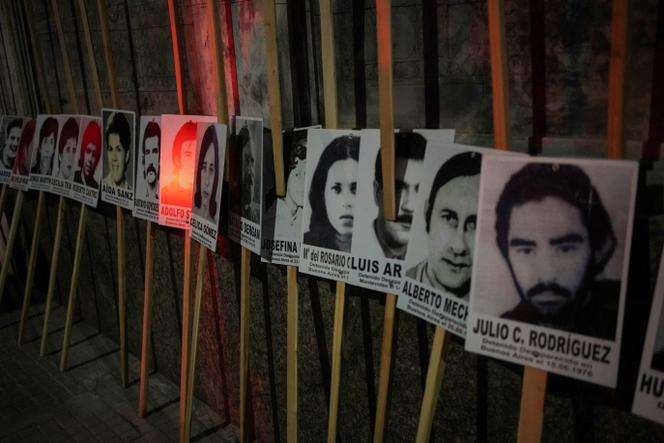


At around 10:00 am on July 30, the excavator bucket began to vibrate, raising a cloud of dust. Its metal teeth had just caught on a thick slab of cement buried some 50 centimeters below ground, close to an oak-lined pathway in the grounds of the Battalion 14 site, a 408-hectare military base 25 km north of the Uruguayan capital, Montevideo.
All night long, armed with metal trowels and paintbrushes, a team of 10 archaeologists and anthropologists gently dug beneath the slab, taking care not to damage any bone remains emerging in the black earth. Three days later, the skeleton eventually appeared, lying face down on the ground. The presence of a bone callus on a rib left little doubt: On September 24, DNA analyses confirmed that this was the corpse of Luis Eduardo Arigon, a 51-year-old bookseller who was active in the Communist Party opposed to the dictatorship and had broken his rib before his arrest on June 15, 1977. According to testimonies from other detainees, he was then tortured to death at La Tablada, a disused hotel used as a detention center.
Arigon's body is now the fourth found in Battalion 14 since excavations began in 2005, rekindling hopes of finally knowing the fate of at least 163 people who disappeared during Uruguay's violent military dictatorship between 1975 and 1985, and whose fate is still unknown. Forty years after the return to democracy, only 34 people have been identified. Of these, 25 were in Argentina and one in Chile, arrested as part of "Operation Condor," a cooperative plan by South American military regimes to eliminate their opponents between 1975 and 1983. In the run-up to the second round of the presidential election on Sunday, November 24, the candidates of the Frente Amplio (left), Yamandu Orsi, and the ruling right-wing Partido Nacional, Alvaro Delgado, are virtually tied in the polls. Both have pledged to continue the investigations.
For the families of the disappeared, finding the bodies is "a form of recognition" for their loved ones, said Sabina Arigon, 59, Luis Arigon's youngest daughter, from the living room of her home in a small building in the south of the capital. Dark-haired like her father, with the same bangs as in her childhood photos, she explained that, over time, faced with their absence, "the disappeared become a kind of fictional character."
Today a professor of architectural history, Sabina was just 12 years old in June 1977, when men in uniform burst into the family home in the middle of the night to arrest her father. Through the window, she and her 17-year-old sister watched as the soldiers forced him into a van and loaded "socialist" books, stolen from their bookshop, into the trunk of a white Fiat. After that, "we never heard from him again," she said.
You have 52.73% of this article left to read. The rest is for subscribers only.
